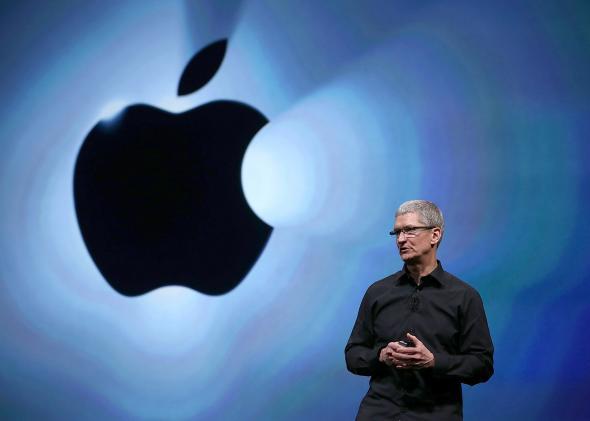Thirty-four years ago, Microsoft won the contract that helped it conquer the computing world, eventually relegating rival Apple to the margins. That contract was with IBM, which needed a software partner to build the operating system for its first personal computer.
These days, it’s Microsoft that’s at risk of being pushed aside as Apple and Google dominate the consumer mobile computing industry. Microsoft retains one big stronghold: the enterprise market, where its Windows operating system still reigns.
On Tuesday, Apple announced a major frontal assault on Microsoft’s home turf: a plan to build business apps and sell iPhones and iPads to companies. And guess who Apple’s partnering with on the deal.
One can imagine the reaction in Redmond: “Et tu, IBM?”
Under the agreement, IBM will sell Apple devices to its corporate customers and provide on-site support. The two companies will also team up in an effort to develop business software that matches the quality and simplicity of Apple’s consumer apps.
No, hell hasn’t frozen over, and this isn’t the first time Apple and IBM have worked together to take on Microsoft. They formed an alliance in the 1990s, along with Motorola, to build the PowerPC as an alternative to the Microsoft-Intel empire. It wasn’t fully successful, of course, and Apple moved on to Intel processors in 2006.
But Apple today is in a very different market position—and so is Microsoft, which is rumored to be preparing a round of job cuts this week. Historically, Apple has paid little attention to the corporate market, which tends to require levels of customization and support that Cupertino has studiously resisted. But now it appears to be going for Microsoft’s throat.
Which is the company that “wants it all” now?
Update, July 15, 2014: I should mention that Microsoft is of course not the only target here. If Apple and IBM were to succeed in conquering the enterprise market, the most crushing blow could be to BlackBerry, which is already teetering on the edge. Google and its Android operating system are another obvious target. But Microsoft, more than Google, has pinned its hopes on remaining the default operating system as its corporate customers move onto mobile devices. That just got more difficult.
